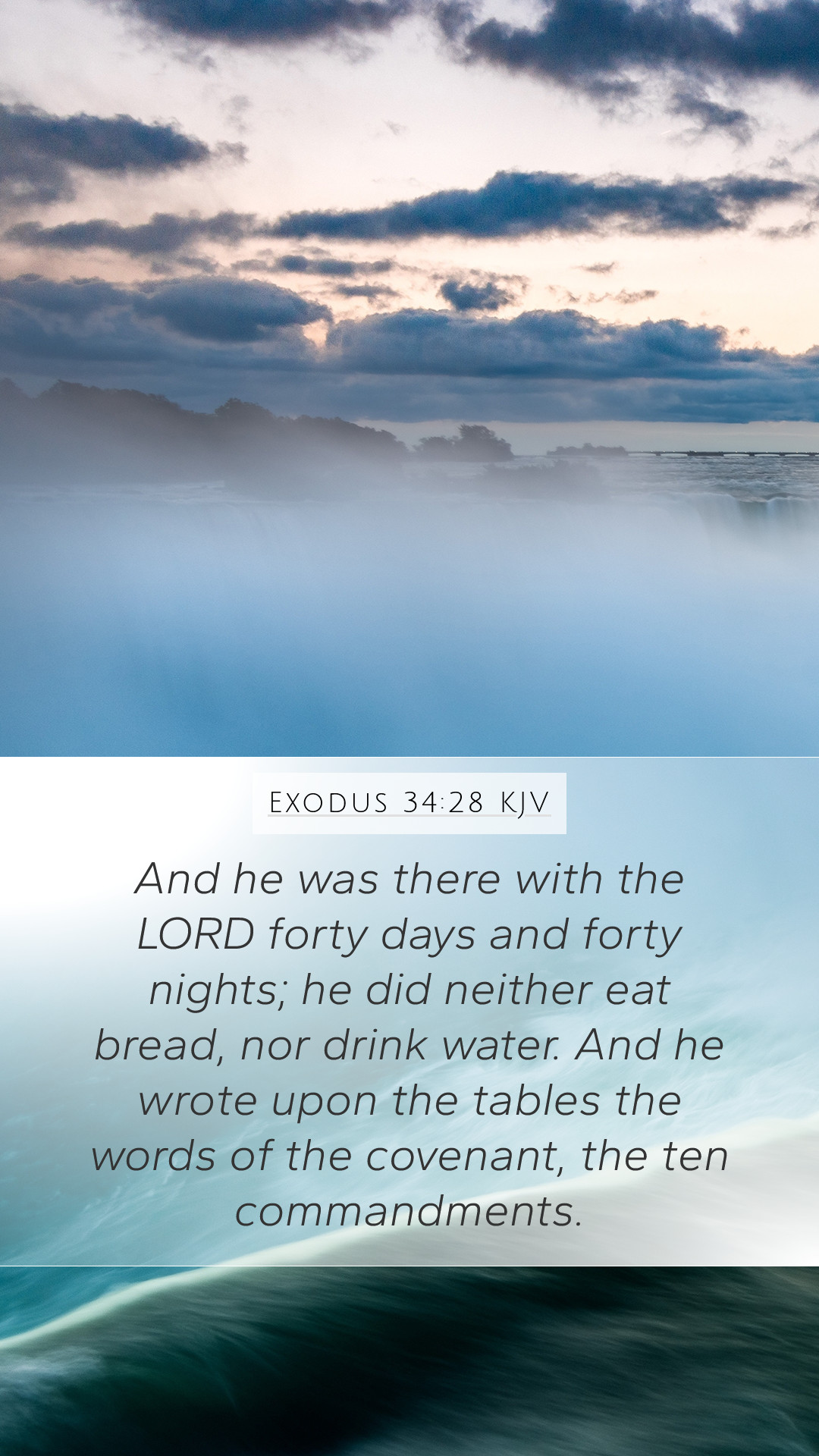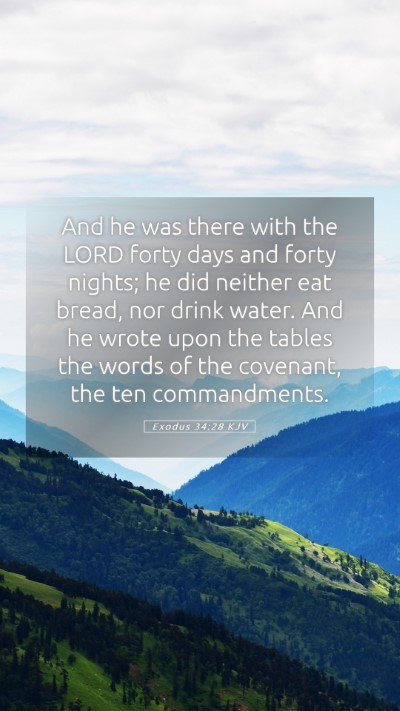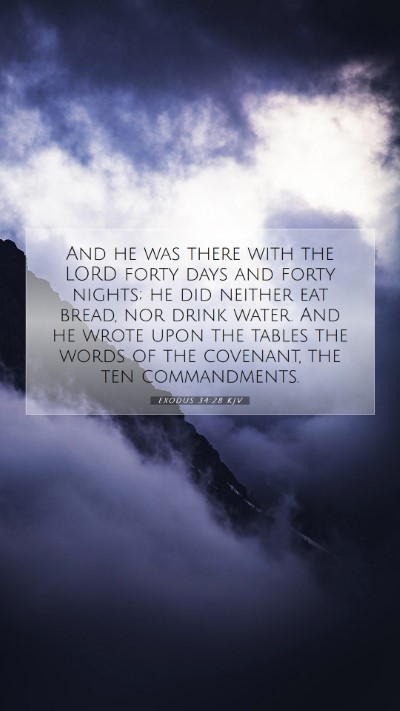Exodus 34:28 - Understanding the Significance of Moses' Encounter with God
Exodus 34:28 states, "And he was there with the Lord forty days and forty nights; he did neither eat bread nor drink water. And he wrote upon the tables the words of the covenant, the ten commandments." This verse captures a pivotal moment in the journey of Israel and highlights the profound relationship between God and Moses. In our exploration of this verse, we will delve into its broader implications and theological meanings as drawn from various public domain commentaries, including insights from Matthew Henry, Albert Barnes, and Adam Clarke.
Overview of Exodus 34:28
This scripture describes the period during which Moses received the Ten Commandments directly from God, reinforcing his role as the mediator between God and His people. His extended time of fasting signifies the seriousness of his mission and the sanctity of the covenant being established.
Summary of Key Interpretations
-
Matthew Henry's Commentary:
Matthew Henry emphasizes the significance of Moses' forty-day fast as a demonstration of his complete devotion and the spiritual gravity of the messages being received. He notes that such periods of fasting are often indicators of serious deliberation with God, setting a model for believers seeking deeper communion with the Divine.
-
Albert Barnes' Commentary:
Albert Barnes focuses on the actions taken by Moses—writing the words of the covenant—indicating the transition from oral tradition to a written law, everlasting in and of itself. Barnes also points out the concept of divine revelation through these commandments as a foundational aspect of Israel's identity and their relationship with God.
-
Adam Clarke's Commentary:
Adam Clarke highlights the importance of the duration of Moses' time with God, interpreting the forty days and nights as a period of deep communion. He notes that this time was necessary for Moses to absorb the gravity of the commandments he was to relay to the people. Clarke also explores the symbolism of fasting, which in this context signifies a complete reliance on God rather than worldly sustenance.
In-Depth Analysis
In exploring Exodus 34:28, we discover layers of meaning relevant for contemporary believers. The forty-day fast symbolizes not only physical deprivation but also spiritual focus. It exemplifies the biblical principle of seeking God above all else, a vital lesson for modern believers who may struggle against the distractions of daily life.
The Themes of Covenant and Law
The giving of the commandments represents a covenant—an agreement that requires both divine and human participation. Moses’ writing of the Ten Commandments signifies God's commitment to His people and sets the guidelines for holy living necessary for Israel to fulfill their purpose as a nation consecrated to God.
The Role of Mediation
Moses stands as a unique mediator in this passage, an archetype for future mediators like Christ. His encounter with God illustrates the direct relationship that is desired between God and humanity. Through prayer and supplication, believers today can continue to seek that same direct access to divine wisdom and guidance.
Cross-References for Deeper Understanding
- Exodus 19:3-6: Where God speaks to Moses about His covenant with the people.
- Deuteronomy 9:9-11: A reminder of the significance of the tablets and the covenant.
- Matthew 4:2: Relating Moses’ fast to Jesus’ own time of fasting in the wilderness.
- Hebrews 8:6: Highlights the significance of the new covenant contrasted with the old.
Application to Daily Life
Believers can draw inspiration from Moses' unwavering commitment to God during his time of fasting and prayer. In a world filled with distractions, understanding the importance of dedicating time to spiritual disciplines—prayer, fasting, and meditation on Scripture—can enrich personal faith journeys. It serves as a reminder that depth in one's relationship with God often requires intentional time set apart for Him.
Conclusion
Exodus 34:28 holds a wealth of meaning that speaks to the core of biblical exegesis. It illustrates fundamental concepts of covenant, mediation, and divine revelation. As one engages in Bible study insights, exploring such passages encourages deeper understanding and equips believers to apply God's teachings meaningfully in their lives.
Final Thoughts
Together with the insights from biblical study guides and commentary resources, this analysis of Exodus 34:28 serves to deepen believers' understanding of the Scriptures. Through continued study and reflection upon both foundational Old Testament teachings and their New Testament fulfillment, individuals can grow in their faith and relationship with God.


